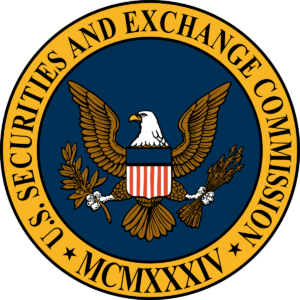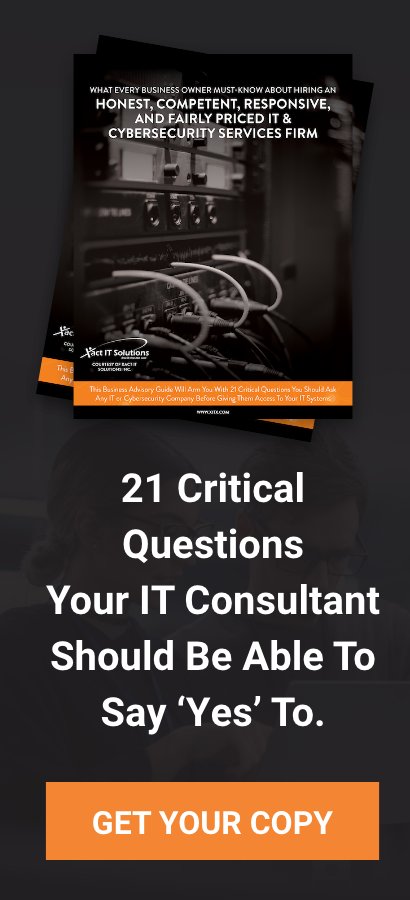 In this blog, we're diving into the world of cybersecurity regulations and their profound effects on businesses in the United States. While we've previously covered this topic in a video back in July 2023, we're witnessing the real-world consequences of these SEC cybersecurity rules even before they officially go into effect in December. Join me as we explore how these regulations are transforming the landscape, with a specific focus on the recent Clorox hack.
In this blog, we're diving into the world of cybersecurity regulations and their profound effects on businesses in the United States. While we've previously covered this topic in a video back in July 2023, we're witnessing the real-world consequences of these SEC cybersecurity rules even before they officially go into effect in December. Join me as we explore how these regulations are transforming the landscape, with a specific focus on the recent Clorox hack.
 The SEC Cybersecurity Rules - A Prequel: Before delving into the Clorox incident, let's first set the stage with some background information on the SEC's cybersecurity rules. These rules, set to take effect in December, bring a new level of urgency and transparency to cybersecurity in publicly traded companies. These rules require swift disclosure of any cybersecurity incidents considered material, complete with a detailed account of the event's nature, scope, timing, and impact on the company's operations.
The SEC Cybersecurity Rules - A Prequel: Before delving into the Clorox incident, let's first set the stage with some background information on the SEC's cybersecurity rules. These rules, set to take effect in December, bring a new level of urgency and transparency to cybersecurity in publicly traded companies. These rules require swift disclosure of any cybersecurity incidents considered material, complete with a detailed account of the event's nature, scope, timing, and impact on the company's operations.
Furthermore, companies must outline their processes for identifying and managing cybersecurity risks, as well as previous incidents. The rules also emphasize the role of the Board of Directors in overseeing cybersecurity threats and the expertise of the management team in managing these risks. While these regulations are not yet in force, the Clorox breach showcases that many companies are already embracing them voluntarily.
The Clorox Hack - Lessons in Compliance: Now, let's turn our attention to Clorox, a company that found itself in the cybersecurity spotlight. Clorox filed an 8k report with the SEC on August 14, 2023, just 15 days after I discussed the SEC rules in a video. This report notified financial regulators about a cyber incident that disrupted the company's operations. A month later, in September, Clorox filed another 8k report, revealing that the unauthorized activity had caused severe damage to its IT infrastructure, resulting in processing delays and elevated product outages. Importantly, this would significantly impact Clorox's quarterly financials.
What's noteworthy here is that Clorox's response closely aligned with the SEC guidelines, even before they were officially mandated. This proactive approach has set a precedent and raises the bar for other publicly traded companies facing similar incidents. However, Clorox refrained from disclosing the full financial damage in their reports, unlike MGM, which promptly shared its estimated $100 million in losses following a cyber incident.
Challenges of Immediate Disclosure: One key challenge that emerges from Clorox's experience is the demand for swift financial disclosures. The SEC expects companies to provide financial impact assessments within a short timeframe, which can significantly impact stock prices. As a result, publicly traded companies need to rapidly adjust to the new reality and share this information with the public.
The Sense of Urgency: Clorox's swift compliance with the SEC rules sends a clear message to other companies: there's no room for delay when it comes to disclosing cybersecurity incidents. Failure to meet these expectations may result in increased scrutiny and potential fines. The pressure to align with these regulations is mounting, and the "unreasonable delay" clause within the rules further accentuates the urgency of addressing cybersecurity issues.
The Shift Towards Risk Conversations: The real challenge lies in closing the communication gap between various stakeholders within companies. CFOs, CEOs, and boards of directors must now engage in meaningful risk conversations with CISOs and general counsel. The shift towards understanding risk rather than viewing it solely as a budget item or percentage of revenue is paramount for effective cybersecurity management.
In the evolving landscape of cybersecurity regulations, publicly traded companies are under increasing pressure to align with the SEC's rules, even before they officially take effect. Clorox's proactive response to a cyber incident serves as a prime example of this changing landscape. With the heightened emphasis on risk discussions, companies must adapt their approach to cybersecurity. By bridging the communication gap between technical, legal, and financial perspectives, businesses can better prepare for and respond to cyber threats.




You must be logged in to post a comment.